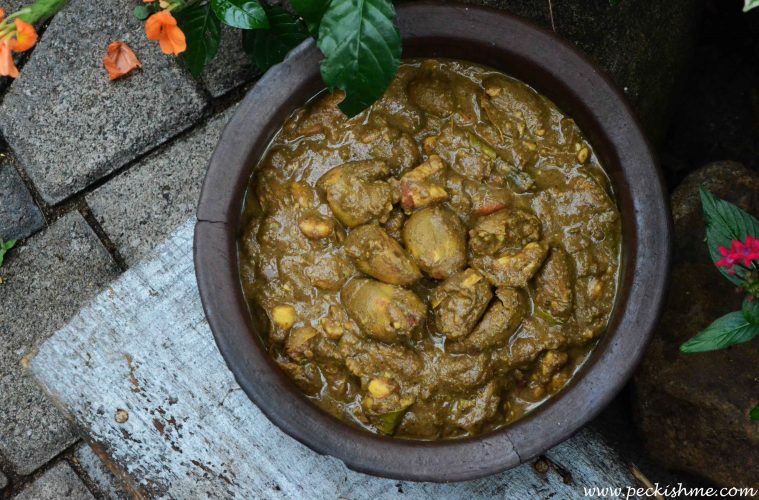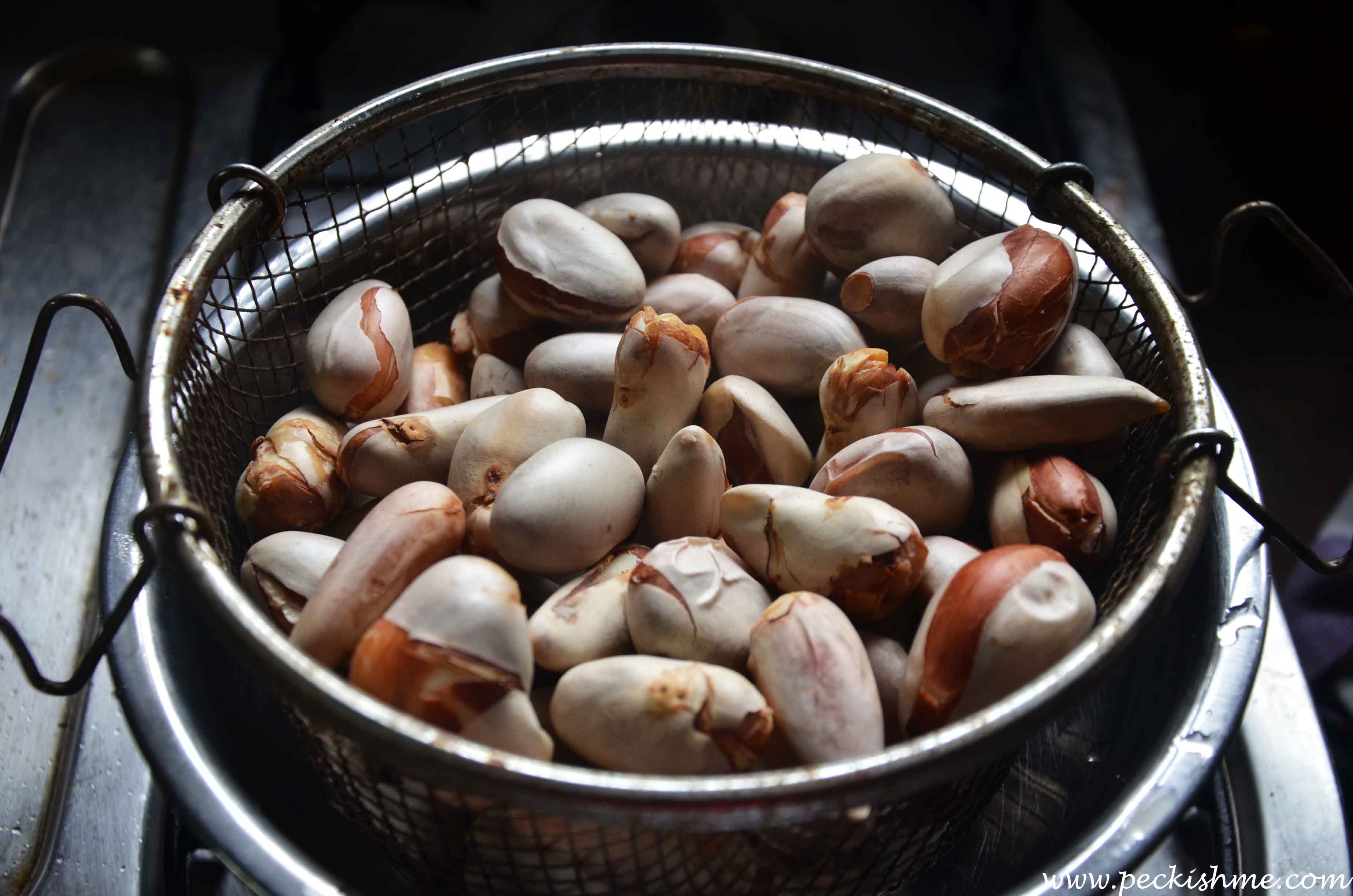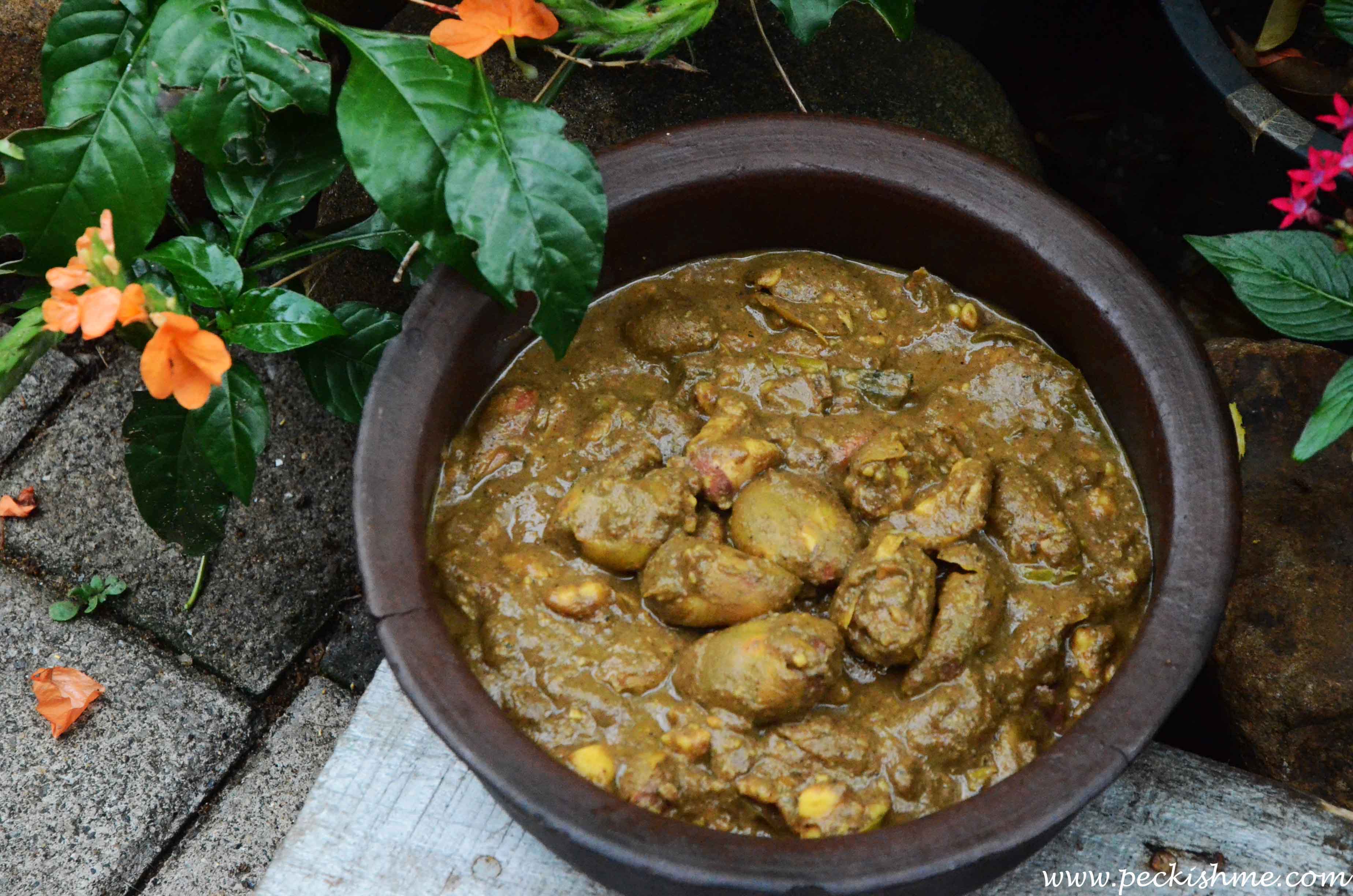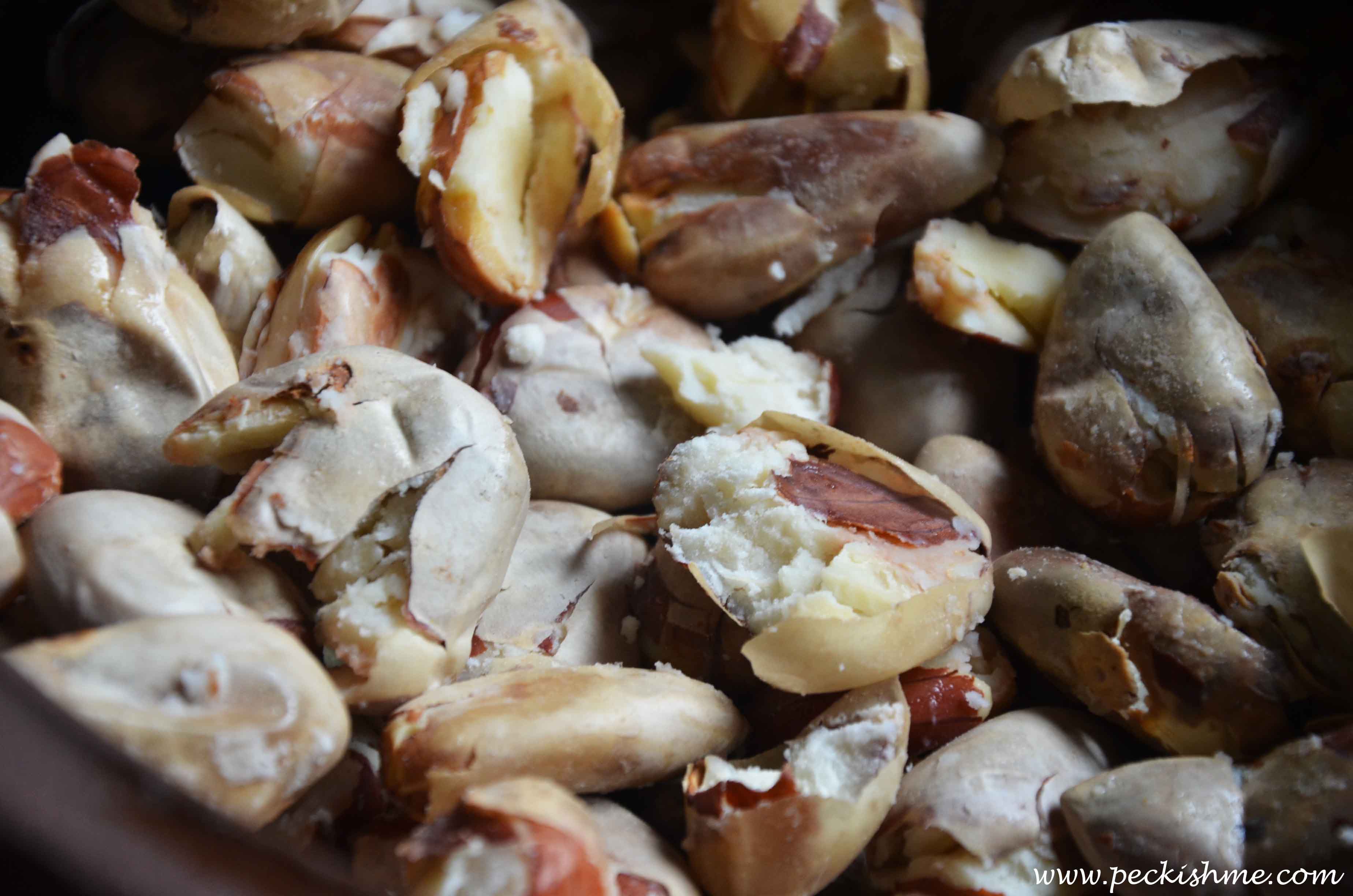From the ancient days, the jack tree was so useful that it was considered akin to a God by Sri Lankans. Every part of the tree is put to use – the young fruit of the tree makes for a delicious polos curry (which is often compared to pulled pork), the flesh of the mature fruit of the tree – the jack fruit is boiled and eaten in the place of rice, the ripened flesh called waraka is sweet and is a delicious and much coveted fruit, the bark of the tree is valuable as timber, the skin of the bark used for making dyes for cloths, the leaves valuable nutrition for cattle. Even the seeds of the fruit are considered a great source of nourishment and it is from this the much loved kos ata kalu pol maluwa is made.
Now I am not going to go into detail about the health benefits of the seeds of the jack fruit and also the flesh of the fruit. A rich source of nutrition, it is high in protein and carbohydrates as well as chockfull of a number of essential vitamins. This is the ultimate vegan elixir.
From all the kos ata kalu pol curries I’ve tasted, I consider my mother’s the most superior. Made with a mix of toasted coconut, spices and rice, the curry itself is so good that I find myself polishing off platefuls of rice with this alone.
Mother likes grinding her own spice mix but I’ve found that using the Sri Lankan roasted curry powder works just as well. It uncomplicates things which is exactly what I want to do here.

Mom’s special spice mix for the kalu pol – Rice, coconut, chili powder, pepper corns, cinnamon, cardamom and fenugreek seeds all dry roasted together and ground into a fine powder
Not everyone can make this properly. And when made properly, it can lull the most carnivorous of taste buds (take it from me) into considering becoming vegan.
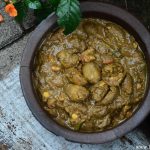
- Yield: 4 servings
- Prep Time: 20 minutes
- Cook Time: 30 minutes
- Serving: 4 servings
Kos ata kalu pol
Ingredients
- Jack fruit seeds - 50
- Coconut - tblsps, freshly grated
- Sri Lankan Curry powder - 1 ½ tbsps, roasted
- Pepper - ½ tsp, ground
- Red onions - 8
- Chili powder - 1 tsp, roasted
- Rice - 2 tbsps, raw
- Fenugreek - ½ tsp, roasted
- Turmeric powder - ½ tsp
- Curry leaf - 2 sprigs
- Pandan leaf - 1 inch piece
- Green chilies - 3
- Light coconut milk - 2 cups
- Thick coconut milk - 3 cups
Instructions
Preparing the jack fruit seeds
- Clean the jack fruit seeds well with water. Do not take off the outer plastic-like skin around the seed. We need it intact.
- Boil the seeds in a pot of water. This might take around 20 minutes. You can check whether they are done by trying to smash one with the back of a spoon. If the seed crumbles to a crumb-like texture, it is done.
- Once the seeds are cooled, smash them slightly. Be careful because you just want to crack the seeds just enough to break through the crisp outer covering.
Preparing the kalu pol
- Dry roast the coconut and the rice until browned and fragrant. Grind together to a fine powder
Preparing the curry
- In a clay pot (preferably), combine the prepared jack fruit seeds, the coconut – rice mixture and all the other dry ingredients. Use your hands. It’s more fun
- Add to this the thin coconut milk. Cook on medium heat until the onion and the curry leaves are cooked
- Once the mixture seems reduced, add the thick coconut milk. Simmer until the curry thickens to the consistency you desire. I prefer the consistency of thickened cream.
- Serve hot with rice. And see if you can keep yourself going for seconds.
Plump, floury jack fruit seeds immersed in a deliciously thick, sinfully creamy gravy bursting (and I use the word ‘bursting’ very responsibly here) with so much flavor. The curry is amazingly coconutty with sunshine embedded within with subtle hints of cinnamon, cardamom, clove lacing in and out of the luscious creaminess reminiscent of exotic islands in the sun. There is a fragrant quality to the dish that is so overpowering at the same time, soothing. Reminds me of Sunday afternoons when each of us with our plates heaped full of the Sunday special lunch would sit around chatting, mashing together rice and other goodies with our fingers savoring mouthful after mouthful of great food and greater conversations. Love, life, family :)
Anyways, try out this traditional Sri Lankan recipe, a personal favorite of mine and one of my mother’s specialties. Let me know what you think in the comments below :)
And oh, this is completely and utterly, vegan!
Cooking tips
- Thick and thin coconut milk – Use scraped coconut of about 1 coconut. The extract that you get after the first time of blending the scraped coconut with about 3 cups of water is the thick coconut milk. The extract that you get after blending the scraped coconut a second time with 2 cups of water is the thin coconut milk.
- This tastes best cooked in a clay pot cooked over an open wood fired hearth. We make do most times on a regular stove top in a normal saucepan when clay pots are not available.
- This is what it should look like when you mash the jack seeds slightly – mashed but still together

